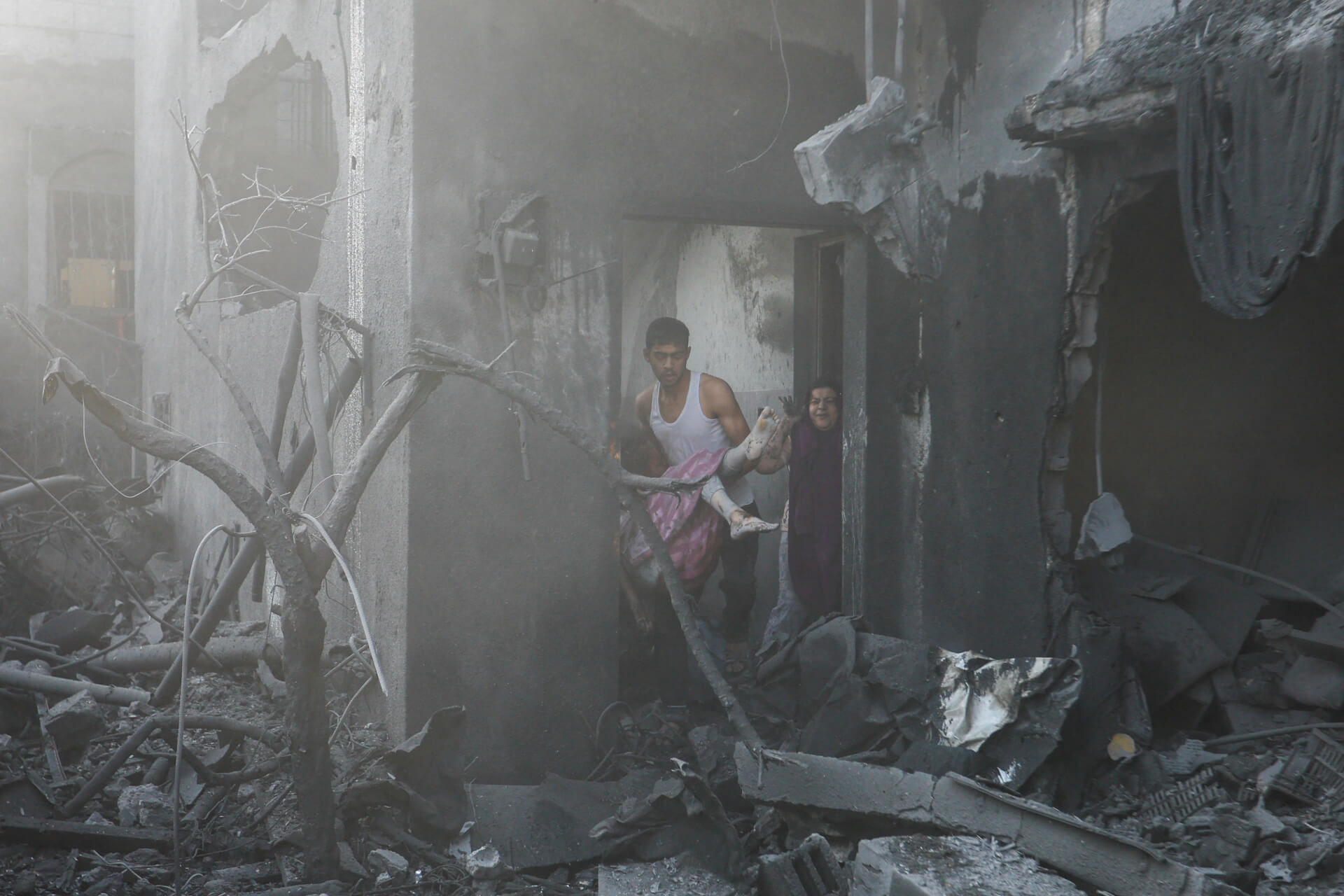Israel declared on Thursday that there would be no humanitarian relief to its siege of the Gaza Strip until all of its captives were freed, after the Red Cross pleaded for fuel to be allowed in to avoid overburdened hospitals from “turning into mortuaries.”
In retaliation for the deadliest attack on Jews since the Holocaust, Israel has pledged to exterminate Hamas, which controls the Gaza Strip.
No Humanitarian Break in Gaza
Thus far, Israel has responded by laying siege to the enclave, which is home to 2.3 million people, and launching by far the most devastating bombing campaign in the 75-year history of the Israeli-Palestinian conflict, destroying the entire neighbourhoods.
Israel’s Energy Minister, Israel Katz, stated that there would be no exceptions to the siege unless Israeli hostages were released.
“Humanitarian aid to Gaza? No electrical switch will be lifted, no water hydrant will be opened and no fuel truck will enter until the Israeli hostages are returned home. Humanitarian for humanitarian. And nobody should preach us morals,” Katz posted on X (formerly Twitter).
According to Gaza officials, the blasts killed over 1,200 people and injured over 5,000 more. Additionally, the sole power station has been turned off, and hospitals are running low on fuel for emergency generators.
On Thursday, Regional Director of the International Committee of the Red Cross Fabrizio Carboni said, “The human misery caused by this escalation is abhorrent, and I implore the sides to reduce the suffering of civilians.”
“As Gaza loses power, hospitals lose power, putting newborns in incubators and elderly patients on oxygen at risk. Kidney dialysis stops, and X-rays can’t be taken. Without electricity, hospitals risk turning into morgues.”
Israeli warplanes have destroyed 22,639 housing units, 10 health institutions and 48 schools since Saturday. https://t.co/fRJuFBBDp0
— Middle East Monitor (@MiddleEastMnt) October 12, 2023
Situation in Gaza
The UN said more than 338,000 Palestinians have been forced to flee their homes in Gaza as Israel continues attacking the Palestinian territory.
“Mass displacement across the Gaza Strip continues,” stated the UN humanitarian organisation OCHA.
By late October 11, the number of displaced people in Gaza had increased by 75,000 from the previous 24 hours, reaching 338,934, as reported by the UN.
More than 1,000 Palestinians have been killed in Gaza due to Israel’s ongoing air and artillery strikes.
The bombing campaign has damaged, or left unusable, at least 2,540 dwelling units in Gaza, as reported by OCHA, citing figures from the Gaza Ministry of Public Works and Housing. Another 22,850 housing units suffered moderate to minor damage, it said.
LATEST: Israeli Defense Minister vows to wipe Hamas “off the face of the Earth” as the new unity government signals a major ground offensive would start soon.
— Bloomberg (@business) October 12, 2023
Our live updates are free to read ⬇️ https://t.co/k5kWGgJ6FJ
Israel’s Ground Offensive
Following the Hamas attack, when armed militants rushed across the strongly guarded border into Israel, raiding houses, rampaging through fields and villages, and dragging up to 150 hostages back to Gaza, Israel has ramped up its offensive in Gaza.
On Wednesday, Israel established a new unity war government, bringing PM Benjamin Netanyahu’s opponents into his cabinet.
Israel has gathered hundreds of thousands of reservists in preparation for a ground attack on Gaza. There has been no invasion decision, “but we’re preparing for it,” military spokesperson Lieutenant-Colonel Richard Hecht said early Thursday.
Consequently, Israel’s Defense Minister, Yoav Gallant said, “They will regret this moment – Gaza will never return to what it was.”
Additionally, Israel regulates the passage of Gaza residents into the country via two crossings, Erez and Kerem Shalom, both of which have been closed.
As per the reports, the only way out of Gaza is through the tightly guarded Rafah border. The Israel Defense Forces (IDF) claimed it bombed the Rafah region on Tuesday, including an underground tunnel for “smuggling weapons and equipment.”
Egypt’s Position on Opening Rafah Border
Egypt on Tuesday sought to prevent a mass exodus from the restricted Gaza Strip into the Sinai Peninsula, fearing Israeli shelling at the Rafah border crossing, the Palestinian enclave’s main exit route, as reported by Gaza officials and Egyptian security sources.
Furthermore, Egypt has expressed concern over Israel’s attack on Gaza, urging Israel to guarantee safe passage to citizens from the territory rather than pushing them to escape southwest towards Sinai, as stated by two Egyptian security sources.
Egyptian President Abdel Fattah al-Sisi claimed on Tuesday that the escalation in Gaza was “highly dangerous” and that Egypt was working with regional and international allies to resolve the conflict.
Ahmed Salem of the Sinai Foundation for Human Rights stated that Egypt’s military has set up additional posts near the border and is conducting patrols to monitor the region.
Humanitarian Groups Assisting Citizens
Humanitarian groups are trying to assist people caught up in the conflict between Israel and Hamas and identify whether relief activities can still be carried out safely – efforts hindered by an expanded siege of Gaza and continued fighting.
On Tuesday, an Egyptian official and relief worker said that the UN and other aid groups were in talks with Egypt about sending humanitarian assistance to besieged Gaza via a crossing point between the strip and Egypt’s Sinai Peninsula.
The World Health Organisation said Tuesday that medical supplies in seven Gaza hospitals had already been used up, and funds were being reprogrammed to purchase additional stock from local markets.
According to an Egyptian military official, the Egyptian Red Crescent has dispatched more than 2 tonnes of medical supplies to Gaza, and preparations are ongoing to organise food and other deliveries.

